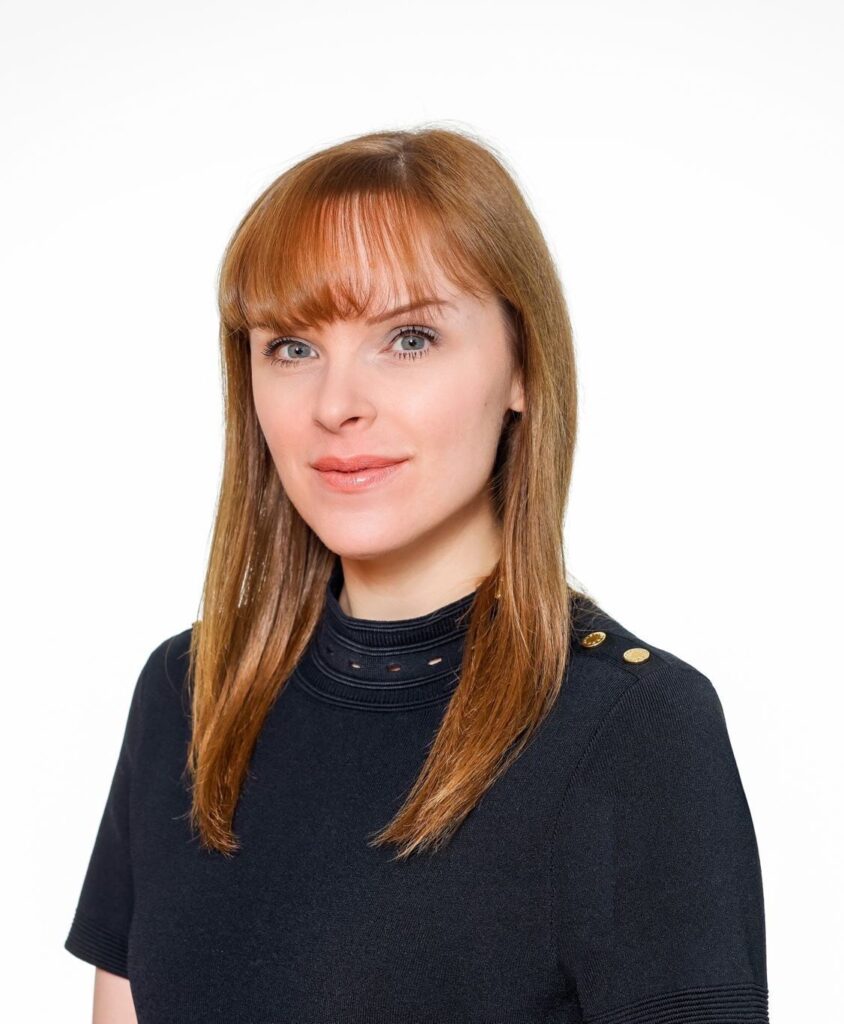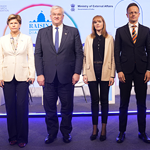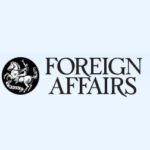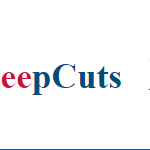Director, Eurasia Nonproliferation Program
[email protected]
Berlin, Germany
Areas of Research
- Russia’s foreign and security policy
- Russia’s approaches to arms control and non-proliferation
- Russia’s relations with the “Global South” broadly, and Middle East in particular
- Russia’s military innovation
- Arms control and non-proliferation in the Middle East
- Chemical weapons
Background
Dr. Hanna Notte is the director of the Eurasia Nonproliferation Program at the James Martin Center for Nonproliferation Studies (CNS) and a Senior Associate (non-resident) in the Europe, Russia, and Eurasia Program at the Center for Strategic & International Studies (CSIS) in Washington DC. Based in Berlin, she regularly writes for English-language outlets such as Foreign Affairs, Foreign Policy, The New York Times, The Wall Street Journal, The Washington Post, and War on the Rocks, among others, and for German-language outlets such as Die ZEIT. She is the co-author of Death Dust: The Rise, Demise, and Future of Radiological Weapons Programs (Stanford University Press, 2023).
Notte joint CNS in 2020 and worked for its European branch, the Vienna Center for Disarmament and Non-Proliferation, from 2021-2023. Previously, Dr. Notte worked with The Shaikh Group, an NGO focused on informal diplomacy in Middle East conflicts, supporting its engagement with Russia. She was a visiting researcher in 2015–16 with the Institute of Oriental Studies of the Russian Academy of Sciences and the Carnegie Moscow Center.
Her current work focuses on Russia’s foreign and security policy, Russia’s relations with the Global South (the Middle East in particular), and arms control and nonproliferation in the Middle East. Dr. Notte is a regular guest on conference panels and podcasts produced by leading U.S. and European think-tanks, and she has testified as an expert witness to the U.S. House Foreign Affairs Committee (Subcommittee on the Middle East, North Africa and Global Counterterrorism). Hanna Notte is a Munich Young Leader (2024). She is proficient in Russian and Arabic.
Education
Dr. Notte holds a doctorate and MPhil in International Relations from Oxford University and a BA in Social and Political Sciences from Cambridge University.
Articles and Activities
- How Ukraine Became a World War
- Russia is weighing the costs and benefits of retaliation
- Containing Global Russia
- Russia’s Dangerous New Friends
- Podcast interview: Russia’s Growing Support for Iran and North Korea
- Is Moscow the Big Winner from War in the Middle East?
- Putin Is Getting What He Wants
- Russia and the Global South
- Russia: A Global Outcast or Still a Desirable Partner?
- What the Israel-Gaza conflict means for Ukraine
- What Role Does Russia Have To Play In Hamas’s Invasion Of Israel? Q&A With Expert Hanna Notte
- US-Russian Relations Can Still Get Worse
- Challenges and Prospects for Further U.S.-Russian Nuclear Arms Control
- Interview: Hanna Notte on Russia in the Middle East After Ukraine
- Dr. Hanna Notte speaks at Lennart Meri Conference in Tallinn
- Russia’s Invasion of Ukraine – The Iran Nuclear Price Tag
CNS Work
- Russia no longer needs Iran’s help to sustain the war in Ukraine
 Iran provided Russia with badly needed Shahed 136 combat drones and their production technology early in the Ukraine war.
Iran provided Russia with badly needed Shahed 136 combat drones and their production technology early in the Ukraine war. - Today’s US-Russia détente is unlike those of the past
 Steeled by years of confrontation, Moscow will not give up just anything in hope of future reciprocity.
Steeled by years of confrontation, Moscow will not give up just anything in hope of future reciprocity. - The Peace Tableau: Actions and Aspirations Regarding Ukraine
 The panel explores the evolving dynamics of peace efforts in Ukraine and how global players are shaping the future of this conflict.
The panel explores the evolving dynamics of peace efforts in Ukraine and how global players are shaping the future of this conflict. - How Big Is Russia’s Appetite for Upheaval?
 Even with Trump’s support, Moscow’s disruptive impulses have their limits.
Even with Trump’s support, Moscow’s disruptive impulses have their limits. - CNS at the 2025 Munich Security Conference
 Hanna Notte represented CNS at the 2025 Munich Security Conference, which took place from 14-16 February.
Hanna Notte represented CNS at the 2025 Munich Security Conference, which took place from 14-16 February. - Putin Just Suffered a Huge Defeat
 CNS expert’s guest essay for The New York Times on the ousting of Bashar al-Assad.
CNS expert’s guest essay for The New York Times on the ousting of Bashar al-Assad. - Rebel advances in Syria spell danger for Russia’s Middle Eastern ambitions
 Moscow’s ability to support its regional partner, Iran, is coming under increasing strain.
Moscow’s ability to support its regional partner, Iran, is coming under increasing strain. - How Ukraine Became a World War
 New Players Are Transforming the Conflict—and Complicating the Path to Ending It
New Players Are Transforming the Conflict—and Complicating the Path to Ending It - Machiavelli in the Ivory Tower: A CNS videocast series
 Ep.12: China’s Nuclear Modernization with Dr. Fiona Cunningham
Ep.12: China’s Nuclear Modernization with Dr. Fiona Cunningham - The Risk of Renewed Nuclear Testing
 The end of nuclear weapons testing is a significant nonproliferation success, yet concerns about its resumption persist.
The end of nuclear weapons testing is a significant nonproliferation success, yet concerns about its resumption persist.
